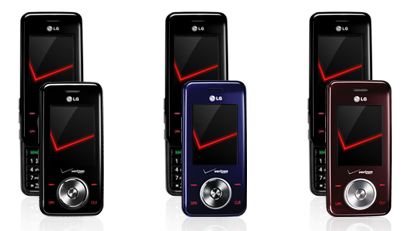 I’ve been wondering this ever since the handset manufacturers and mobile carriers got into the mobile music business. Do people really want to listen to music on their phones and buy it from Verizon, AT&T, Nokia, and others?
I’ve been wondering this ever since the handset manufacturers and mobile carriers got into the mobile music business. Do people really want to listen to music on their phones and buy it from Verizon, AT&T, Nokia, and others?
According to a new study by M:Metrics, 83 percent of the mobile music consumed in France, Germany, Italy, Spain, the U.K., and the U.S. is “sideloaded”, meaning it comes from another source and is transfered to the phone via a computer. With this is mind, the answer for buying music directly from the carriers or certain handset makers is, for now, “no.”
 Granted, listening to music on mobile phones is still in its infancy. Many handset manufacturers have included MP3 playback capability for a few years. And to get in on the action, the carriers — who are always searching for new revenue streams — are hastily building their music download services.
Granted, listening to music on mobile phones is still in its infancy. Many handset manufacturers have included MP3 playback capability for a few years. And to get in on the action, the carriers — who are always searching for new revenue streams — are hastily building their music download services.
Yet music on cell phones and the opportunity to buy music directly from the carriers or handset makers still seems like an add-on, an afterthought, an attempt to cash in on the mobile music craze, with the exception of maybe the iPhone and higher-end music phones from a variety of manufacturers.
Jen Wu, an analyst at M:Metrics, says that mobile music is quickly catching on but says, in a conflicting statistic, that on average 10.7 percent of mobile subscribers across the six countries reported listening to music on their mobile devices, ranging from 5.7 percent in the U.S. to 20 percent in Spain.
And the analyst does not answer the question if people really want to buy their music directly from the carriers and certain handset makers, from online stores like iTunes, AmazonMP3, eMusic, 7Digital and others, rip and transfer the music themselves, or get it from friends via Bluetooth or any number of other means.
“The proliferation of music phones is causing a shift in digital music toward the mobile platform, which opens numerous opportunities for music-related content, services, hardware, and accessories built to accommodate or enhance these mobile music activities.”
I don’t know about Wu, but I consider mobile to also mean iPods, Zunes, and other MP3-enabled portable devices, not just cell phones. Music phones are not causing a shift in digital music toward the mobile platform. The shift has already happened.
